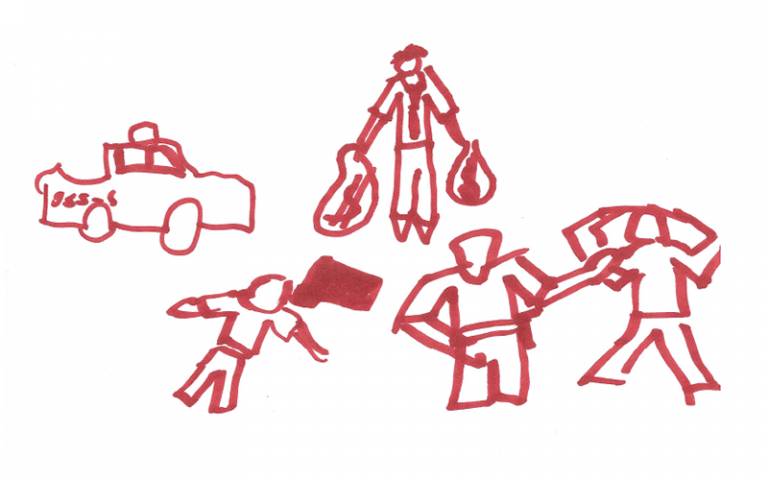DPU PhD student defends thesis on extreme and chronic urban violence in El Salvador
8 July 2022
Congratulations to Ariana Markowitz who has successfully defended her doctoral thesis, which stakes out a feminist approach to studying fear amid extreme and chronic urban violence in San Salvador, El Salvador.

Ariana argues that this feminist approach is better attuned to the complexities of contexts like San Salvador: better able to navigate risks, gather meaningful data, and dismantle the structures that produce and reproduce fear and the harm it causes. In other words, reflecting on and using feminist methods teaches us more about how dangerous places are made, enabling us to explore how fear manifests and is metabolised and how a city can nurture and imagine alternatives.
In San Salvador, violence has coursed through the past and stretches into the future, ascribing bodies and places with fear. Ariana interrogates the centre and the margins of the city through collective, embodied, and relational research methods. She works alongside young people, especially young men, police officers, bus drivers, and informal traders, all viewed as causes and symptoms of violence and thus stripped of their entitlement to care. Using visceral methods, she analyses how fear distorts perceptions of urban space and how spaces of rest, respite, and refuge materialise among the distortions, shedding light on fear’s productive role in making the violent city and charting paths toward repair.
Underlining these findings is that conventional ways of studying and measuring insecurity centre violence that is countable, and countable violence tends to be physical, public, and criminal. Examining violence instead through the lens of gender shifts attention to everyday violence, agency, silence, absence, and messiness. Practising feminist ethics amid this shift in focus widens our understanding of violence to distinguish it from fear, broadens the work of prevention and reparation, and expands the reserve of methodological tools available. Infrastructures of care support this approach and informed empathy sustains it.
 Close
Close

